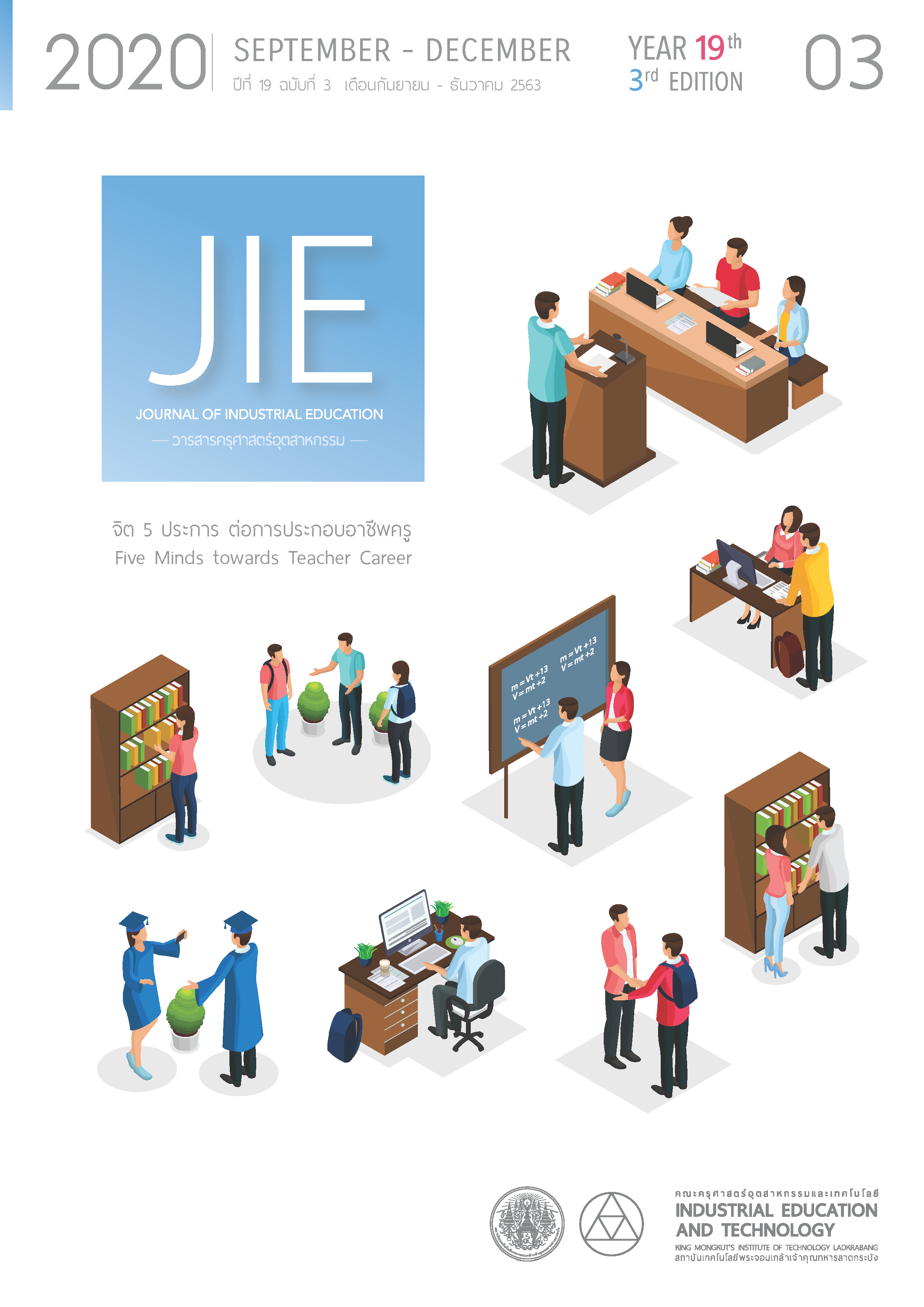DEVELOPING AGRICUITRAL LEARNING ACHIEVEMENT BY INTERGRATING STEM EDUCATION AND PROJECT-BASED LEARNING FOR HIGH SCHOOL STUDENTS
Keywords:
Learning achievement, STEM education, Project-based learning, Working processAbstract
The purposes of this research were to compare pretest and posttest learning achievement using STEM education with project-based learning: and to investigate students’ working process, attitudes and satisfaction toward agriculture subject. In total, 18 eleventh grade students of Tepleela School were respondents of this study. One group pretest-posttest design was used as the research method. Research tools consisted 15 lesson plans, 80 multiple-choice test items, a working process evaluation form and an attitudes test toward agriculture subject. Statistics such as percentage, mean, standard deviation and t-test were used for data analysis. Results showed the posttest means of learning achievement were statistically higher than the pretest means at .05 level. The student’s working process revealed at very good level (=111.44, S.D.=3.34), The students’ attitude were good level (
=4.50, S.D.=0.11), whilst their satisfactions were at highest level (
=4.63, S.D.=0.61). The learning achievement was reflected in the integration of STEM education with the project to analyze, synthesize, and evaluate solutions for higher efficiency. Including skills and work processes from planning, working systematically, moreover they were practicing by doing to acquire additional knowledge in their own interest with group activities. Therefore, students have good skills and attitudes towards working together.
References
Office of the Education Council. (2017). National Education Plan 2017-2036. Bangkok: Prigwhangraftfic. 1. (in Thai)
Ministry of Education. (2017). Learning standards and indicators for mathematics learning Science and geography In the subject of social studies, religion and culture (Revised version 2017) according to the core curriculum of basic education 2008. Bangkok: The Agricultural Co-operative Federation of Thailand. 1. (in Thai)
Tepleela School. (n.d.). Tepleela School Curriculum 2018. [Online]. Available: http://www.tepleela.ac.th Retrieved April 2, 2020. 3. (in Thai)
Phuwiphadawat, S. (2001). Child center and Authentic Assessment. Chiang Mai: The Knowledge Center. 93-98. (in Thai)
Likert, R.A. (1932). “Technique for the Measurement of Attitudes.” Arch Psychological. 25(140), 1–55.
Bloom, B. S., Krathwohl, D. R., & Masia, B. B. (1956). Taxonomy of Educational Objectives. New York: David Mckay Company. 6.
Besa, N. (2015). “Effects of STEM Education Approach on Biology Achievement, Problem Solving Ability and Instructional Satisfaction of Grade 11 Students.” Master’s thesis, Prince of Songkla University. 48-49. (in Thai)
Angkhoonrohit, P. (2000). Pragmatism : The Foundation of Education Philosophy in A Democratic Society. Bangkok: Publisher of Chulalongkorn University. 1-20. (in Thai)
Siripiyadhum, W., Kiddee, K., & Pupat, P. (2015). “The development of learning achievement and problem solving ability for grade 12 students by using project-based learning activities.” Journal of Industrial Education. 14(2), 221-227. (in Thai)
Sariwat, L. (2014). Psychology for teachers. Bangkok: O.S. Printing House. 203. (in Thai)
Duangsri, T. (2017). “Learning activities with the STEM education method for developing students' learning achievements and science related attitudes of secondary students at the 11th grade level on the rate of chemical reaction lssue in chemistry subject.” Master’s thesis, Rajabhat Maha Sarakham University. 62-65. (in Thai)
Khemmanee, T. (2011). Teaching Knowledge : Teaching for efficient learning process management. 14th ed. Bangkok: Chulalongkorn University Press. 120. (in Thai)
Matthayomnan, P. (2017). “Developing grade 10 students' teamwork in equilibrium using science activity learning packages based STEM education.” Master’s thesis, Obun Ratchathani University. 39-42. (in Thai)
Downloads
Published
How to Cite
Issue
Section
License
"The opinions and contents including the words in papers are responsibility by the authors."
"ข้อคิดเห็น เนื้อหา รวมทั้งการใช้ภาษาในบทความถือเป็นความรับผิดชอบของผู้เขียน"



